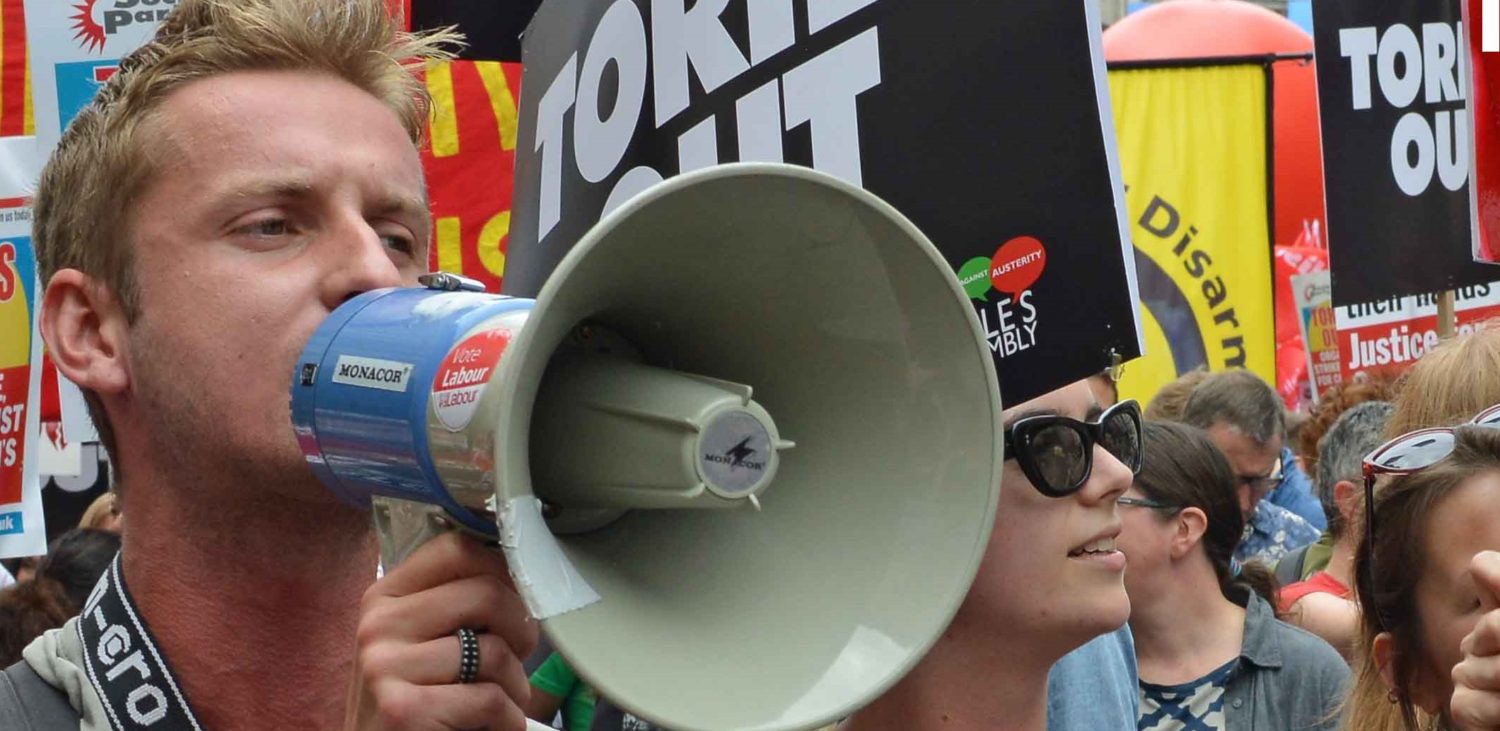Working together
Unions must work alongside Labour to make work the number one political issue and to deliver real change, writes Dave Ward.
As we think about the future for the labour movement, the starting point must be for us to reflect on where we are today – and the picture is not pretty. Stagnating wages, plummeting investment, spiralling personal debt, entrenched inequality and insecure employment are not distant prospects, but have taken hold in our economy. While we may not yet think of the past eight years of Tory-led government as ideologically driven in the same way as the 1980s, under the guise of austerity they have delivered significant change.
In the world of work, zero-hours contracts, bogus self-employment and in-work poverty are the norm for millions of people. And the issues aren’t confined to the margins of the labour market. When I say at rallies that I can’t remember a time when workers felt under greater pressure to work harder for less, all I can see is a sea of heads nodding in agreement – teachers, nurses, doctors, transport workers, private and public sector workers are all coming under ever greater strain, as the workplace has become a more pressurised environment than at any time in living memory.
But do we yet truly grasp the scale of this challenge – and is the labour movement equal to the task of tackling it?
It’s firstly the trade union movement that needs to face up to this crisis in the world of work – and there are some hard facts we cannot avoid. It’s an uncomfortable truth that, at a time when in-work poverty is at a record high, the trade union movement has never spoken for fewer people in the workplace – and membership is lowest amongst those in insecure work. If we fail to attract more people to our ranks, we’ll have let down not just this generation, but future generations too.
Together with the need to recruit more members we need a serious strategy to deal with insecure employment.
The first part of the union response was the demonstration for a New Deal for Workers that took place this May. We now need to build on this with a simple but effective four-point plan to promote unity, collectivism and some honest discussions about where we are and where we’re going.
First, we are calling for unions to agree a common bar-gaining agenda to tackle insecure work – including zero-hours contracts, fixed-term contracts, contracts without holiday pay or sick pay, fake self-employment – and use that to challenge all employers where we have recognition and mobilise our members to fight for it. If all trade unions agreed to push a set of core issues in collective bargaining this would not just be a powerful message to employers, but a signal to workers everywhere that trade unions are on the march.
Second, we need to hold a summit where unions sit down and agree a charter, as we did with the Bridlington principles in 1939, which aimed to resolve disputes among unions. I believe the time has come for a new agreement for greater co-operation between unions, allowing us to better organise the millions who aren’t already members. We often talk about the dangers of competition in society: we also have to act against it in our own movement. We must go further than having a disputes procedure between unions and work towards a strategy to recruit people who we aren’t currently reaching.
Third, we need to publish our own manifesto explaining what constitutes a new deal for workers. There’s fresh thinking going on in the Labour party, often working together with the Institute for Employment Rights and its manifesto for labour law. We can build on that with some fresh thinking of our own.
On pensions for instance, we need to halt the trend that is seeing the burden shifted onto workers while executive pay and dividends continue to increase. On trade unions we need a positive set of rights – from access to workplaces to changes to recognition rules – and a clear agenda on sectoral collective bargaining that can be rolled out on day one of a Labour government.
And fourth, unions should be coming together to determine the forms of action we can take in support of our agenda. This should be the most important issue at TUC Congress in September this year. From there, we should agree a day of action early in 2019 – and work out what action is deliverable.
In the past, mounting a radical challenge to the government and employers has focused on calls for a general strike, but too often the inability to get
agreement on this makes it an excuse to do nothing. So we should focus on what is actually deliverable, with action backed up with the collective strength of the communications and social media expertise of different unions, to create a menu of options that workers can choose from on a given date.
I genuinely believe that there’s now a different mood out there among workers. If we set out to work together like never before, we will deliver a bold new deal and workers will benefit from changes in the world of work rather than losing out.
Alongside this industrial agenda for the labour movement, we need to ensure unions are at the centre of political change too. On the political front there is no doubt in my mind that Jeremy Corbyn and John McDonnell understand the need for Labour to promise fundamental change if we are going to address the structural inequality and imbalance of power in our economy.
For it is not just the legacy of the past 10 years that worries me, but what the future holds. We’re at a crossroads where one route will lead to ever greater power for gigantic corporations like Amazon and Facebook, while most of us scramble for whatever short-term, low-pay work these companies have to offer us. The other road is one where we re-assert the importance of collectivism and shift the balance of power back to working people.
At such a crucial time, then, the role of trade unions must be to continue to support the Labour leadership and work to ensure we can get a Labour government that is in a position to deliver. And given the current political turmoil, that means being ready for an election at any time.
Equally, we have to make the world of work the number one political issue in this country to connect with working-class voters across the UK. Obviously we need to fight for a Brexit that puts workers’ rights and jobs first, but too often in this debate it sounds like we’re just arguing to keep what we have. Given the scale of the problems we face, there would be no greater gift to the populist right than the labour movement being seen as the defender of the status quo.
On all fronts, I’m clear, then, that the labour movement must be pushing a radical agenda for change. Industrially and politically, there has rarely been a more important time for this and unions should be leading the wider labour movement to re-assert trade union values and secure a new deal for all workers in the UK.

